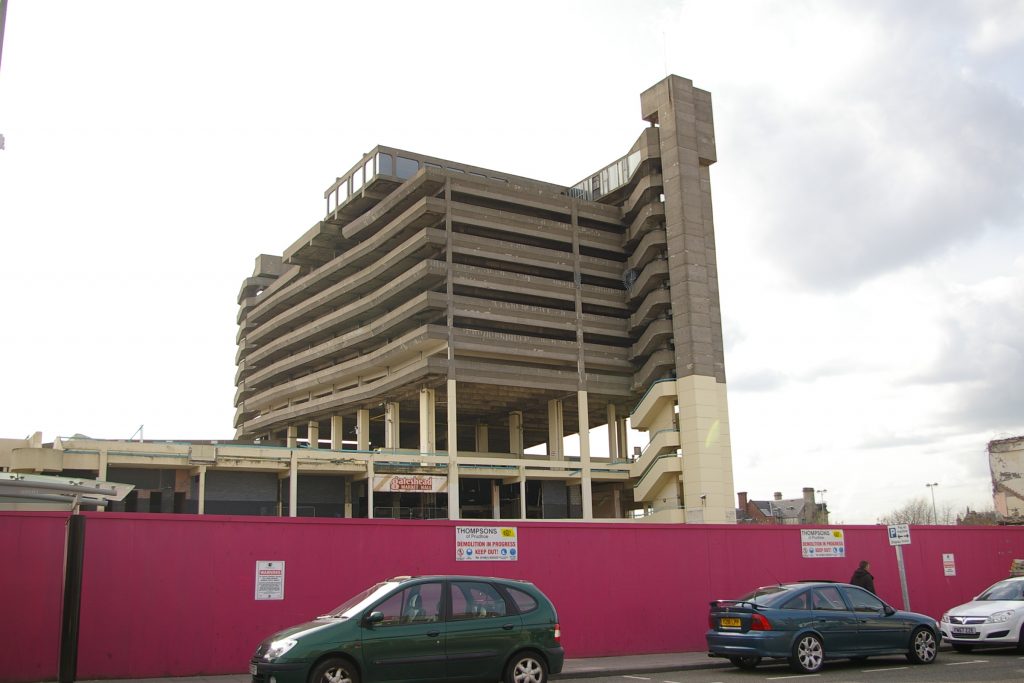Et tu, Brutalist?
So, it’s farewell to Owen Luder, doyen of the Brutalist Movement – architects who designed buildings for brutes.
Most will remember him for his legacy of awful, inhuman buildings like the “Get Carter” carpark in Gateshead, the Tricorn Centre in Portsmouth or even the “Dunston Rocket” tower flats also in Gateshead. Many have now been rightly consigned to history, despite the loss of the huge embodied carbon in all that concrete.
I do remember looking at the Gateshead car park shortly before it came down and wondering just who he thought would ever want to occupy the restaurant perched on its top level, offering a fine view of the town’s destruction by 1960s road builders. That town centre was pretty much finished off by the out-of-town Metrocentre, leaving it to stand as a monument to late 20th century follies in planning and architecture.

The “Get Carter” car park
No, it’s something Luder once said that still tickles my interest.
I was covering a conference at which he was speaking, sometime in the late 1980s. Other than his apricot coloured bow-tie, it was his response to a question about corruption in the planning system that stuck in my memory.
“We all know it shouldn’t happen,” he said. “But we all know that it does.”
I often wonder what he knew. We did indeed all know it happened, but apart from the famous T Dan Smith/Poulson case in Newcastle, it seldom if ever resulted in prosecution or even consents being quashed.
Long ago the London County Council’s last (and the Greater London Council’s first) chair of planning told me that, as soon as she was appointed, she was bombarded with offers of expensive dinners, trips to the races, helicopter flights around the capital etc. from developers. She rejected them all, confident in the knowledge that accepting them would have led to more solid forms of bribery.
I will say now that I believe a large majority of planning officers and councillors were then, and are now, completely honest despite today having to struggle with a system being wrecked by Whitehall. And the introduction of “plan-led-development” in the 1990s was supposed to have put a stop to plain brown envelopes full of cash put through letterboxes of councillors or senior planners late at night.
But I do sometimes wonder if it really did eliminate corruption in the planning system, given the multi-billion pound industry which depends on a flow of permissions.
A small handful of councils have got too cosy with that industry. In some ways an element of corruption might offer a rational explanation.
Indeed, what would we make of it if they really are trashing sustainable development in the sincere belief it is the right thing to do?
Jon Reeds
 Jon Reeds
Jon Reeds
 Nigel Pearce
Nigel Pearce